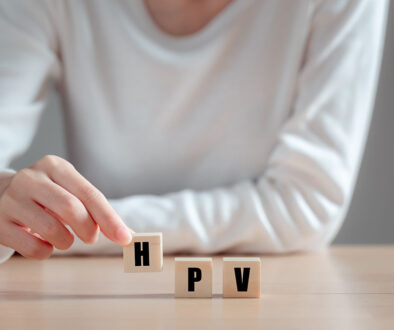How To Avoid The Three Most Common Sexually Transmitted Infections
Do I have a sexually transmitted infection?
You may be surprised to learn that not all sexually transmitted infections have symptoms, so it may not always be obvious. This also means that you or your partner can spread the disease without knowing, so it’s vital to get tested regularly.
Each year there are roughly 20 million new cases of sexually transmitted infections (referred to as STIs or STDs) in the United States, according to the Centers for Disease Control.
The most common sexually transmitted infections in the United States are HPV, chlamydia, and gonorrhea.
We’ll take a closer look at the most common STDs, how to avoid them, and answer the important question ‘do I have an STD?’
WHAT IS THE MOST COMMON STD IN THE US? HUMAN PAPILLOMAVIRUS (HPV)
The human papillomavirus (HPV) is the most common of the sexually transmitted infections in America. Almost every sexually active person catches it at some point in his or her life.
What Are the Symptoms of HPV?
While some types of HPV cause few symptoms and no medical problems, other types can lead to serious diseases such as genital warts and cervical cancer. The CDC estimates that there are 360,000 cases of genital warts and 10,000 cases of cervical cancer each year. HPV can also cause oropharyngeal cancer (cancer of the throat).
HPV may not show any symptoms until it causes genital warts, a bump, or a group of bumps in the genital area. Cancers from HPV may not be evident until they are discovered through a routine screening.
How to Prevent HPV
Vaccinations can protect both men and women from HPV. The vaccinations should be given between the ages of 11 and 12; however, “catch-up” vaccinations may be effective if given before age 26.
If you have not been vaccinated, you can reduce your risk of getting HPV by being in a mutually monogamous relationship or using latex condoms. However, HPV can also affect areas of the throat, which cannot be protected by a condom.
CHLAMYDIA IS THE MOST REPORTED STD IN AMERICA
Chlamydia is the most common notifiable STD in the United States. Notifiable, or reportable, diseases are illnesses that must be reported to local health departments when diagnosed. These reports help local, state, and national agencies identify trends to help researchers control future outbreaks. (HPV is not considered a reportable STD.)
Both men and women can get chlamydia.
While the disease is easily cured, it can severely and permanently damage a woman’s reproductive system, making it difficult or impossible for her to become pregnant. In addition, chlamydia can cause a serious condition called an ectopic pregnancy. This condition occurs when an egg is fertilized outside the womb. Chlamydia may also be passed from a mother to her child.
Those with chlamydia often do not have any noticeable symptoms, so they are unaware that they are spreading the disease to others. Anyone who has unprotected sex can catch chlamydia, although statistics show that sexually active young people—particularly women–are at a higher risk.
What Are the Symptoms of Chlamydia?
For men:
- Discharge from the penis
- Burning urination
- Testicular pain and swelling
For women:
- Burning urination
- Abnormal vaginal discharge
Chlamydia can also affect the rectum. The following symptoms may indicate a rectal chlamydial infection:
- Rectal pain
- Discharge
- Bleeding
How To Prevent Chlamydia
The best way to prevent chlamydia is to abstain from vaginal, anal, and oral sex. In addition, you can dramatically reduce your chances of catching chlamydia by maintaining a long-term monogamous relationship with a disease-free partner.
Consistent condom use can also reduce the risk of catching chlamydia. Because there are often no symptoms of chlamydia, it is important to have an honest discussion with your sexual partner about testing for this disease.
GONORRHEA: THE SECOND MOST COMMONLY REPORTED STI
Gonorrhea is the second most commonly reported notifiable disease in the US. While gonorrhea can be treated successfully, delay in treatment can result in serious medical complications.
Not only does untreated gonorrhea increase a person’s risk of getting HIV, but it can also lead to pelvic inflammatory disease (PID) in women. PID can lead to infertility and increase the risk of having an ectopic pregnancy. Women may also transmit the infection to their child.
Gonorrhea can cause rectal infections. Anyone who has unprotected sex –either vaginally, orally, or anally— is at risk of contracting gonorrhea.
What Are The Symptoms of Gonorrhea?
Symptoms of gonorrhea in men include:
- Painful, burning urination
- Swollen testicles
- A yellow, white, or green discharge
Symptoms of gonorrhea in women include:
- Painful, burning urination
- Bleeding between menstrual periods
- An increase in vaginal discharge
How to Prevent Gonorrhea
While abstinence is the only certain way to avoid gonorrhea, you can decrease your risk by being in a mutually monogamous relationship or using latex condoms every time you have sexual intercourse. The more sexual partners you have, the greater your risk of developing gonorrhea.
Do I Have an STD?
At this point, you may have noticed that you have some of the symptoms listed above. If you do, you should schedule an appointment with one of our internal medicine physicians in Cary as soon as possible.
However, if you do not have any of the symptoms above, you could still have a sexually transmitted infection because, as we mentioned earlier, not all STDs have symptoms.
The only way to be sure whether or not you have an STD is to have regular testing. We recommend regular testing if you are at risk of developing an STD.
What Are Some Examples of “Silent” STDs?
For example, in some people, chlamydia shows certain symptoms. However, in others, it does not, which is why some refer to it as a “silent” infection.
Another example is genital warts. If they appear, you may not see symptoms at first. Signs can develop as soon as three weeks or even months or years after contact with the virus that causes genital warts. Because it takes so long for some of these symptoms to develop, you could spread the disease without knowing it.
So if you’re wondering “do I have an STD?” realize that you can be infected without showing immediate symptoms.
Who Is at Risk of Developing an STD?
While anyone can get an STD, certain people are at higher risk. These include:
- Those who have unprotected sex
- Those who are young: Half of the STD infections in the U.S. occur in those between the ages of 15 and 24
- Those who have multiple sexual partners. Remember, because not all STDs have symptoms, you or your partner may have an STD and not realize it.
If you suspect that you may have a sexually transmitted disease, you must speak to our internal medicine physicians in Cary to avoid some of the long-term and serious medical consequences that can occur.
Physicians with Cary Medical Group offer STI testing services. Contact us to schedule an appointment.



